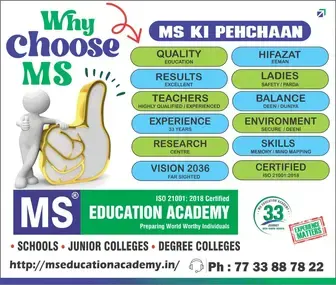
Bhopal: The Committee on Auqaf in India, formed recently by Jamiat Ulama-i-Hind (JUH), has broadly agreed on 3 phases with priorities. The focus will be on 7 States or 90 Multi-sectoral Development Programme (MsDP), in terms of geography.
The Committee held its first meeting on Zoom on Saturday last. In the meeting, the majority opinion of the Committee supports concentrating solely on Public education and awareness on Auqaf in the initial phase. This will involve organizing state-wise capacity building/training programs, seminars, conferences, generating high-quality content, and disseminating it through both print and digital mediums. The aim is to build a social capital pool for this cause.
At the meeting a consensus was reached on some other points which were as follows:
- The minority opinion within the Committee suggested focusing on Auqaf Property Development, but this was not agreed upon by the majority.
- It is recommended to engage with experts Shafiq and Prof. Furqan Ahmed.
- The Committee will decide on the name of this initiative/platform, roles, responsibilities, and departments in the second phase if necessary.
The key points discussed in the meeting in accordance with the agenda were as follows:
State-wise Development: Initiate work in 7 states (Gujarat, Delhi, Telangana, Madhya Pradesh, Maharashtra etc.) followed by 3 states (Haryana, Punjab, Rajasthan) for the development of Waqf properties;
Model Creation: Develop effective models and best practices for Auqaf property development;
Establishment of Departments: Propose the creation of various departments including Public Education, Legal Cell, Research, Liaison with Waqf Boards and Legislators;
Community Engagement: Emphasis community participation as an initial step;
Educational Material: Prepare informative pamphlets/publications and videos on Auqaf; Awareness Campaign: Design campaigns for community and schools;
Role Clarification and Decentralization: Define roles and responsibilities and decide the banner or platform name;
Communication: Draft and send letters to concerned citizens regarding Auqaf; Capacity Building: Focus on training programs for Ulamas, Mutawalis, Imams, Media, Auqaf Beneficiaries, Activists and others on Auqaf. (Suggested topics: Waqf from Islamic Perspective, Waqf Act, Waqf Legal aspects and procedures, and Waqf records); Utilization of Funds: Utilize government funds for development programs in 90 districts under the Multi-sectoral Development Programme (MsDP);
Revival of NWDCL: Work towards reviving the National Waqf Development Corporation Limited & State-wise Planning: Plan all programs state-wise for effective implementation.
The committee aims to address key issues related to Waqf management and governance, with a diverse group of individuals contributing their expertise and insights.
At the outset the meeting commenced with the opening remarks from the Committee’s Convenor, Akramul Jabbar Khan (Retd. IRS, former Chief Income Tax Commissioner). Ovais Sultan Khan, Advisor to JUH, facilitated the discussion during the meeting.
Others who attended the meeting were: Afzal Mohammad Safvi Farooqui (Naib Sajjadanashin, Khanqah-i-Safvi, Safipur); Farid Tungekar (Director, Waqf Liaison Forum); Fuzail Ayyubi (Advocate on Record, Supreme Court of India); Iqbal M. Shaikh (Former Member, Central Waqf Council, GoI); M. J. Akbar (Retd. IFS, ex-Special Officer, Waqf Board for Andhra Pradesh & Telangana); Saif Ali Naqvi (Educationist); Adv. Muhammad Tahir M. Hakim (Member AIMPLB) and this Correspondent.
Meanwhile, it may be mentioned here that a Round Table Conference was convened by JUH on 27th April last at its Headquarters in New Delhi. This brought together esteemed individuals from diverse backgrounds and regions across India, actively involved in the Auqaf issues.
Maulana Mahmood A. Madani, the president of JUH, presided over the conference, with Ovais Sultan Khan, Advisor to JUH, serving as the moderator. The conference was structured around two key panels: “Discovering Solutions” and “Devising Actions.”
The welcome address was delivered by Maulana Mahmood Madani, setting the tone for the discussions that followed.

